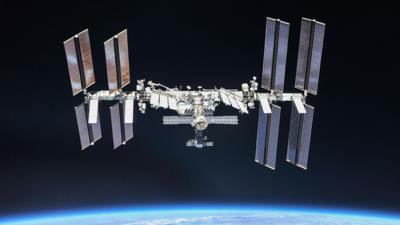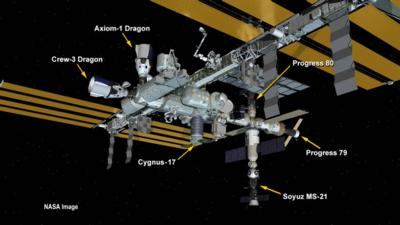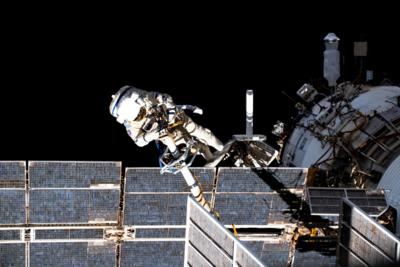Roskosmos Boss Asserts Russia Will Build Its Own Orbital Outpost
Russia, in the midst of a protracted conflict with Ukraine and crippling economic and technological sanctions levied against it by Western nations, has announced that it will withdraw its support of and end its participation in the International Space Station.

Yuri Borisov, head of Roskosmos—the state corporation that oversees Russian Federation space endeavors—states that Russia will honor its ISS obligations until 2024, after which the superpower will begin construction of its own space station.
The ISS is funded and chartered to function until 2024; the U.S., however, seeks to extend the station’s operation through 2030—pending the agreement of its international partners in the undertaking.
Since 1998, the United States, Russia, the E.U., Japan, and Canada have worked harmoniously, conducting thousands of scientific experiments and advancing all manner of space and terrestrial technologies aboard the aptly named International Space Station. Regrettably, relations between Russia and its partners have soured since the former invaded Ukraine in February 2022.
It is not immediately clear what impact Russia’s decision will have on the future of the ISS. Nor is it yet certain that Borisov—who’s blustered publicly for some time about Russian withdrawal from the ISS—intends to carry out his threat. In point of fact, at the time of this writing, senior NASA officials assert the U.S. space agency has not been officially informed by Moscow of any plans to terminate Russian involvement in the ISS.
Russia has previously alluded to aspirations of building its own orbital outpost. Such an enterprise, however, would require a financial commitment Moscow has yet to make in even the country’s extant space exploits.

In a strictly technical context, Russia’s withdrawal from the ISS presents significant, likely insuperable challenges to the facility’s continued operation. The U.S. component of the ISS provides station power; the Russian component provides the propulsion that keeps the football-field-sized contraption from falling to Earth. Were Russia to shutter it’s stake in the ISS, the U.S. and its remaining partner nations would be hard-pressed to devise alternate means of periodically correcting the station’s orbit—by 2024, anyway.
Russia’s ostensible withdrawal from the ISS comes on the heels of a July agreement allowing Russian cosmonauts to travel to the station aboard American spacecraft, and American astronauts to do likewise aboard Russian space vehicles. At the time of its signing, Roskosmos declared subject agreement would: "… promote the development of cooperation within the framework of the ISS program.”

Russia’s fallings out among the space community extend beyond its obduracy toward the ISS. The European Space Agency (ESA) recently ended its collaboration with Roskosmos to launch a rover to Mars. The snub compelled Russia to discontinue operations of its Soyuz spacecraft from an ESA launch site in French Guiana.
Russia and its former Soviet iteration have contributed significantly to humankind’s exploration of space. That the nation should betray its spacefaring tradition by rashly ending its involvement in the International Space Station is unfortunate, and sullies a firmament of accomplishments dating back to Sputnik and Gagarin.
 Bolen Gives Congress a Rare Thumbs-Up
Bolen Gives Congress a Rare Thumbs-Up The SportPlane Resource Guide RETURNS!!!!
The SportPlane Resource Guide RETURNS!!!! Buying Sprees Continue: Textron eAviation Takes On Amazilia Aerospace
Buying Sprees Continue: Textron eAviation Takes On Amazilia Aerospace Hawker 4000 Bizjets Gain Nav System, Data Link STC
Hawker 4000 Bizjets Gain Nav System, Data Link STC Echodyne Gets BVLOS Waiver for AiRanger Aircraft
Echodyne Gets BVLOS Waiver for AiRanger Aircraft





